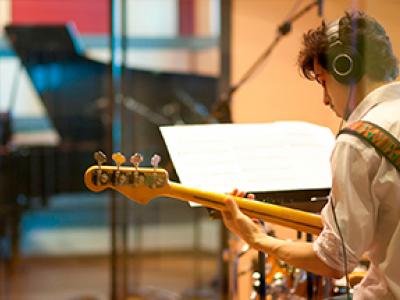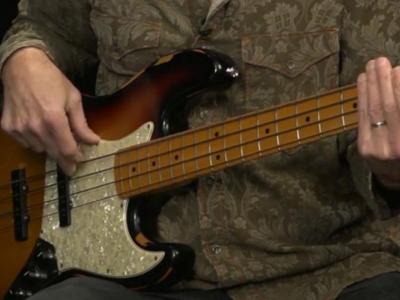What does a Music Director (Performing Artist/Band) do?
Multitalented musicians who work with performers in every style of music, music directors bring the skills and knowledge of a producer, arranger, and performing musician together in a single package. While they work in a broad range of situations, they are most frequently hired to prepare a band for a concert or tour. The music director for a solo pop act such as Miley Cyrus or Lorde, for example, auditions and selects the touring musicians and backup singers who will support the star, creates and teaches arrangements to the musicians, and shapes the music in rehearsals during the weeks before the performance. In some cases, the music director may even play alongside the musicians, although this is more common for bandleaders.
A music director must be able to comprehend another artist's vision, have the personal and musical skills to communicate that vision to others, and be able to build a deep sense of collegiality among the players in an ensemble.
With extensive knowledge of music technology, composition, and performance, musical directors are responsible for shaping every aspect of the musical performance, from the general—such as the feel or aim of an arrangement—to the specific—like which effects pedal to use during a solo. During performances, the music director cues entrances and transitions, integrates prerecorded tracks in the live show, and is the point person for resolving musical, technical, and sometimes personal issues among the band. If a singer decides at 4:00 p.m. to add a cover tune to that night's set list, it's the job of his or her music director to make sure everyone knows the arrangement by show time. Other duties may include writing charts, collecting and distributing pay to band members, and overseeing communications among the band.
At a Glance
Many music directors get their start by assuming a leadership position within their own bands: auditioning and hiring players, crafting arrangements, and leading rehearsals. Ultimately, what's important is being well-versed in the process of building and running a tight live show. With experience and a solid reputation, music directors may advance to better-paying gigs with more prominent performers or take jobs in television and film, directing talent shows like American Idol or major broadcast events such as the Oscars or the Super Bowl halftime show.
In order to even be considered for a music director position, one needs to have a proven track record as a performing musician, arranger, or bandleader—preferably all of the above. If the position is for a tour, then touring experience is essential. Once a music director is established, finding work is largely a function of effective networking and a reputation for solid, dependable work. Music directors can also find work in the television and musical theater industries.
- Broad knowledge of instruments
- Arranging
- Music hardware
- Hiring
- Live performance
- Leadership and collaboration
- Verbal communication
- Organization
Music directors must be able to understand or infer another artist's musical vision, have the communication, leadership, and musical abilities to convey that vision to others, and build a sense of collegiality among the players in an ensemble. In other words, a good music director is a good leader: patient, respectful, confident, and inspiring. Being detail-oriented, organized, and prepared is vital both for maximizing rehearsal efficiency and handling the performance, when anything could happen.
The lifestyle of a music director tends to be essentially the same as that of a touring musician: extended periods away from home, traveling from city to city to play for new audiences every night. Like many performance jobs, music direction is a freelance field, so securing consistent gigs requires a certain amount of music industry knowledge and connections.










